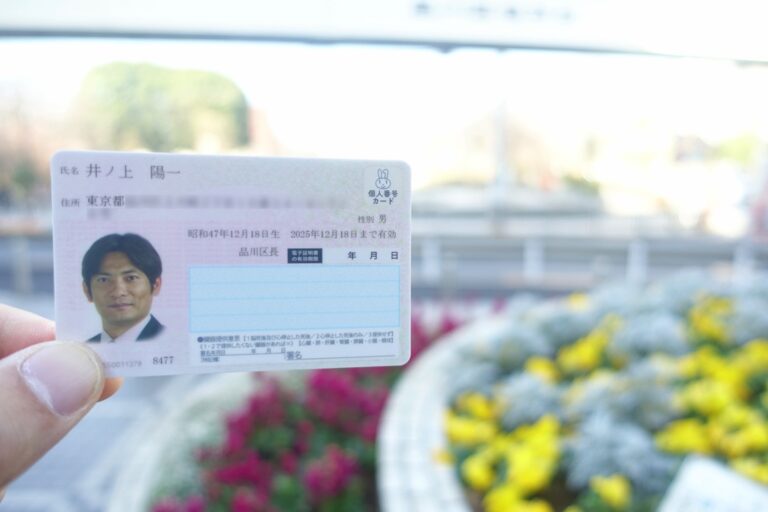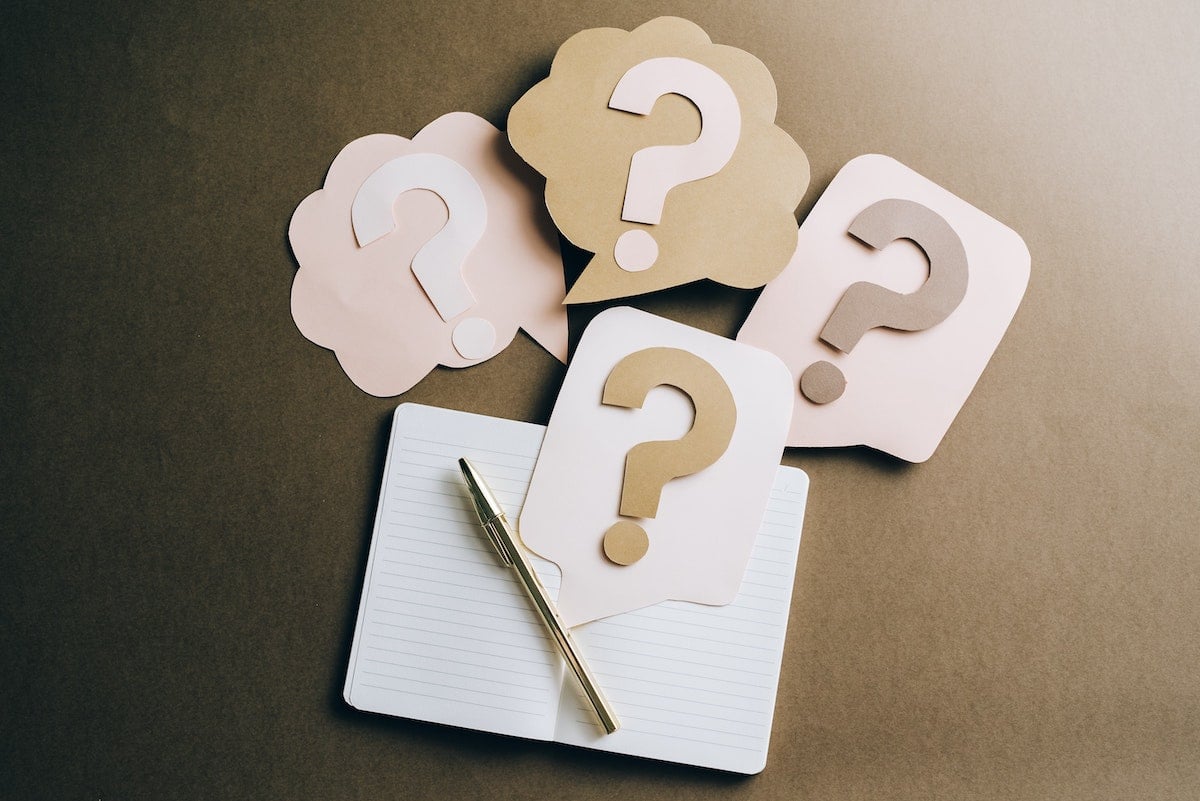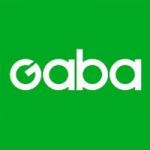
If you’re staying in Japan for longer than 3 months, you’ve probably heard about the My Number System.
But how does the system work? And should you (or should you not) create a My Number Card?
In this article, we’re answering the top questions people ask about My Number:
- What is a My Number?
- Who gets a My Number?
- What are the pros and cons of having a My Number Card?
- How can I get a My Number Card?
- What if I can’t take a photo according to the guidelines because of medical, religious, or other reasons?
- What happens if I lose my My Number Card?
- What if I don’t have a My Number Card?
- What was in place before My Number?

What is a My Number?
A My Number (also known as an Individual Number) is a 12-digit ID number assigned to each resident of Japan. The number applies to you while you reside in Japan and stays with you for life. (That means that if you move away and then come back to Japan, you’ll get the same number again.)
My Numbers are similar to Social Security numbers in the U.S. or national insurance numbers in the U.K.
Once you register an address in Japan, you’ll automatically get assigned a number. Then you can choose to create a My Number Card (also known as an Individual Number Card).
Your My Number Card has all of your personal information on it (name, address, photo, date of birth, sex, and your 12-digit My Number), plus an IC chip that contains the same information.
The number is used to verify your identity, apply for public services, file taxes, and more.
Who gets a My Number?
Everyone with a registered address in Japan gets issued a My Number and has the ability to create a My Number Card. Both Japanese citizens and foreign residents have a My Number.
People who are visiting Japan for less than 3 months or who haven’t registered an address in Japan will not receive a number.
What are the pros and cons of having a My Number Card?
Having a My Number Card gets you a number of benefits:
- Quick identity verification. You can verify your identity quickly, because the My Number card is one of the strongest forms of identification and can be used by itself to prove your identity. (This can be used to open bank accounts and other secure services.)
- Easy to get official documents. You can print out official government documents, like a Certificate of Residence, at the convenience store instead of having to go to a municipal office.
- Online taxes. You can file a tax return online without having to submit a paper version.
The downside of having a My Number Card is:
- Risk of identity theft. Carrying the card around can leave you vulnerable to identity theft. Since you don’t need to keep it on your person at all times, you can leave it at home unless you need it for something.
How can I get a My Number card?
After registering your address, you’ll receive a notice in the mail with your My Number and instructions to apply for the card. My Number Cards are free.
The notice has a QR code that takes you directly to the online application. You can also download a written form from the website or visit your local municipal office to apply directly.
To apply, you’ll need a photograph of yourself that follows the guidelines. You can take one with your phone against a white background and submit it for the application.
After you submit the application and your card has been issued, you’ll get a postcard letting you know that your card is ready to pick up at your local municipal office.
At the office, you’ll set a PIN number for your My Number card and any other passwords and services you want to add to it.
If your name or address changes, you’ll need to go back to your municipal office to update the card. The card expires after 10 years or on the same day your visa will expire, whichever comes first.
What if I can’t take a photo according to the guidelines because of medical, religious, or other reasons?
The My Number official website says that to take the photo in the way that’s possible for you, then call or visit your municipal office to let them know why you cannot comply with the guidelines.
What happens if I lose my My Number Card?
The official website says to call the Individual Number Card Call Center and ask them to suspend the card. At the same time, you should file a police report and save the report receipt. With all of this completed, you can visit your local municipal office to apply for a new card.
What if I don’t have a My Number Card?
According to Japan Times, roughly 50% of Japan had a My Number Card in September 2022. As of today, it’s not mandatory to have one, but not having one means you’ll have to deal with a few inconveniences:
- You’ll need to provide at least 2 forms of ID when signing up for bank accounts or government services.
- You won’t be able to print out official government documents at your local convenience store and will have to visit a municipal office instead.
- You won’t be able to file taxes online.
None of those are a huge inconvenience, but a recent development may make it hard to put off creating your My Number Card: the Japanese government has announced plans to replace the national health insurance card with My Number Cards by 2024.
If you have national health insurance, you’ll eventually need to make a My Number Card to continue having coverage.
What was in place before My Number?
The Basic Resident Registration System
Before My Number was implemented in 2016, there was a digital system called the Basic Resident Registration System. It was used in a similar way to My Number: to verify identification and allow residents to sign up for government services.
Each person had the ability to sign up for a Basic Resident Registration Card, much like the My Number card of today.
Most municipalities had access to the shared database of Resident Records, but it was not available everywhere.
The 11-digit Resident Record code could be changed at any time by request, and non-governmental organizations were prohibited from accessing the number.
In comparison, the My Number system is universally accepted across all municipalities and is sometimes used by non-governmental organizations like banks in order for identity verification. My Numbers are not easily changed, but it is possible to change them if there is reason to believe that the number has been compromised.
Resident records were once locally-based
Before smart ID cards like My Number and the Basic Resident Registration Card, resident information was kept locally at each municipal office, making it difficult to verify records across municipalities.
The My Number system aims to make it easier to manage resident records, provide access to government services, and verify each resident’s identity through the use of a single, shared ID number.
Conclusion
We hope this article answered some of your questions about My Number. If you’re still looking for answers, you can find even more information at the official My Number FAQ page.
Author: Amanda Horiuchi















